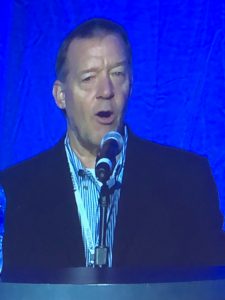Maier & Maier Defends Continually, Ltd. Against Allegations of Patent Infringement By Disintermediation Services, Inc. in the Western District of Texas
On June 22, 2022, Disintermediation Services, Inc. (“Disintermediation”) filed a Complaint alleging that Continually Ltd. (“Continually”) infringed U.S. Patent Nos. 11,240,183, 11,336,597, and 11,349,787, which purportedly cover two-way real time communication systems that allow asymmetric participation in conversations across multiple electronic platforms. The case was filed in the Western District of Texas, Waco Division, and was assigned to Judge Albright.
Maier & Maier represented Continually in the lawsuit, which is amongst a number of cases in which the firm has appeared in different districts in Texas. The parties were able to resolve the dispute and the case was voluntarily dismissed with prejudice on April 17, 2023.
Maier & Maier continues to enjoy consistent and favorable results in its litigation matters. The firm has obtained favorable results when defending clients accused of infringement by competitors as well as cases brought by patent assertion entities.
The Continually dismissal follows others in which Maier & Maier has helped defendants obtain efficient resolutions, including PASCO Scientific v. Vernier Software & Technology, (D.Or.), Aperture Net LLC v. Electric Mirror, Inc. (W.D.Wash.), Altus Partners, Inc. v. Altus Market Access, Inc. (E.D.Cal.), and Wave Linx LLC v. MeetingOne.com, Corp. (D.Colo.). The dismissal also comes on the heels of Maier & Maier successfully obtaining a stay on behalf of defendants in a patent infringement lawsuit between E9 Treatments, Inc. v. Kopman LLC et al. in the Southern District of Texas.
About Maier & Maier PLLC
In 2022, Maier & Maier issued over 800 total patents and maintained its positive growth trajectory, exceeding 25% year over year growth. The firm has proven its capacity for steady growth with an uncompromising commitment to delivering efficient and effective results.
Maier & Maier’s litigation team has also been hard at work delivering positive results for clients. The Maier & Maier Team continues to advocate on behalf of clients in federal courts, before the Patent Trial and Appeal Board, Trademark Trial and Appeal Board, and the International Trade Commission.
Representative Engagements
- Cedar Lane Technologies v. THine Electronics, Inc., D.Tex., 6:22-cv-01145
- Concrete Support Systems, LLC v. Bond Formwork Systems, LLC, W.D.Tex., 1:20-cv-01150
- Transcend Shipping Systems, LLC v. Maersk, Inc. et al., D.Tex.,6:20-cv-01122-ADA
- Advanced Cartridge Technologies, LLC v. Mark Collier et al., D.Tex., 1:21-cv-00657-ELY
- AGIS Software Development LLC v. Xiaomi Corporation et al., E.D.Tex., 2:22-cv-00450 and 337-TA-1347 (International Trade Commission)
- E9 Treatments, Inc. v. KopMan LLC, S.D.Tex., 2:22-cv-00172
- Wave Linx LLC v. MeetingOne.com Corp., D.Colo., 1:22-cv-03077
- Altus Partners, Inc. v. Altus Market Access, Inc.,D.Cal., 2:22-cv-01994
- PASCO Scientific v. Vernier Software & Technology, Or., 3:21-cv-01523
- Aperture Net LLC v. Electric Mirror, Inc.,D.Wash., 2:22-cv-015348
- Disintermediation Services, Inc. v. Continually Ltd., D.Tex., 6:22-cv-00649
- com, LLC v. Kinefinity, Inc., C.D.Cal., 8:21-cv-00041-JVS
- Internet Media Interactive Corp. v. Sightline Media Group, LLC, D.Del., 1:21-cv-00970-MN
- Freetek Holdings, LLC v. Extollo Communications, W.D.Wash. 2:21-cv-01021-TSZ
- Sykes v. Nash Distribution, Inc., E.D.Va.,1:21-cv-00897-TSE-MSN
- Juul Labs., Inc. v. Vaperistas LLC, N.D.Ill., 1:20-cv-04092 and 337-TA-1211 (International Trade Commission)
- Lander Enterprises, LLC v. iSonic Inc., D.Conn., 3:20-cv-01693
- Thomas A. Person v. Cigar Reserve LLC et al., D.Ind., 4:20-cv-00212

